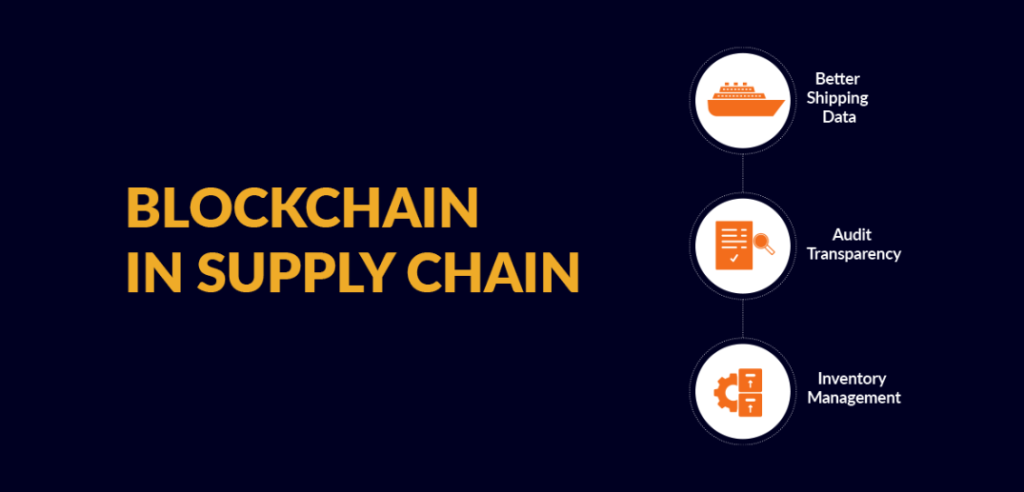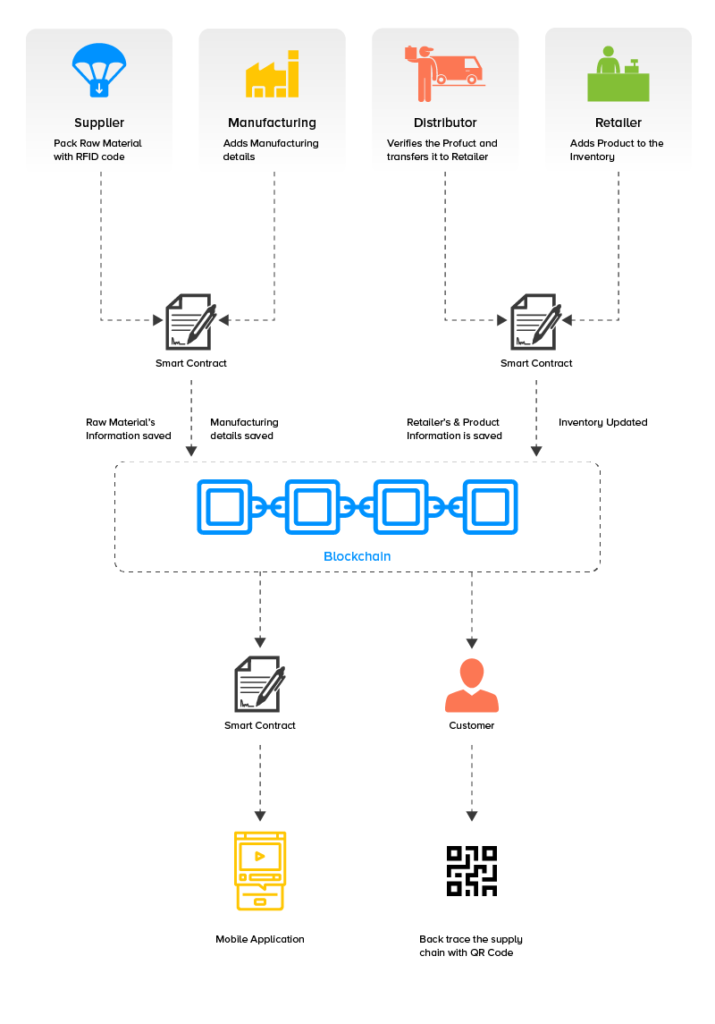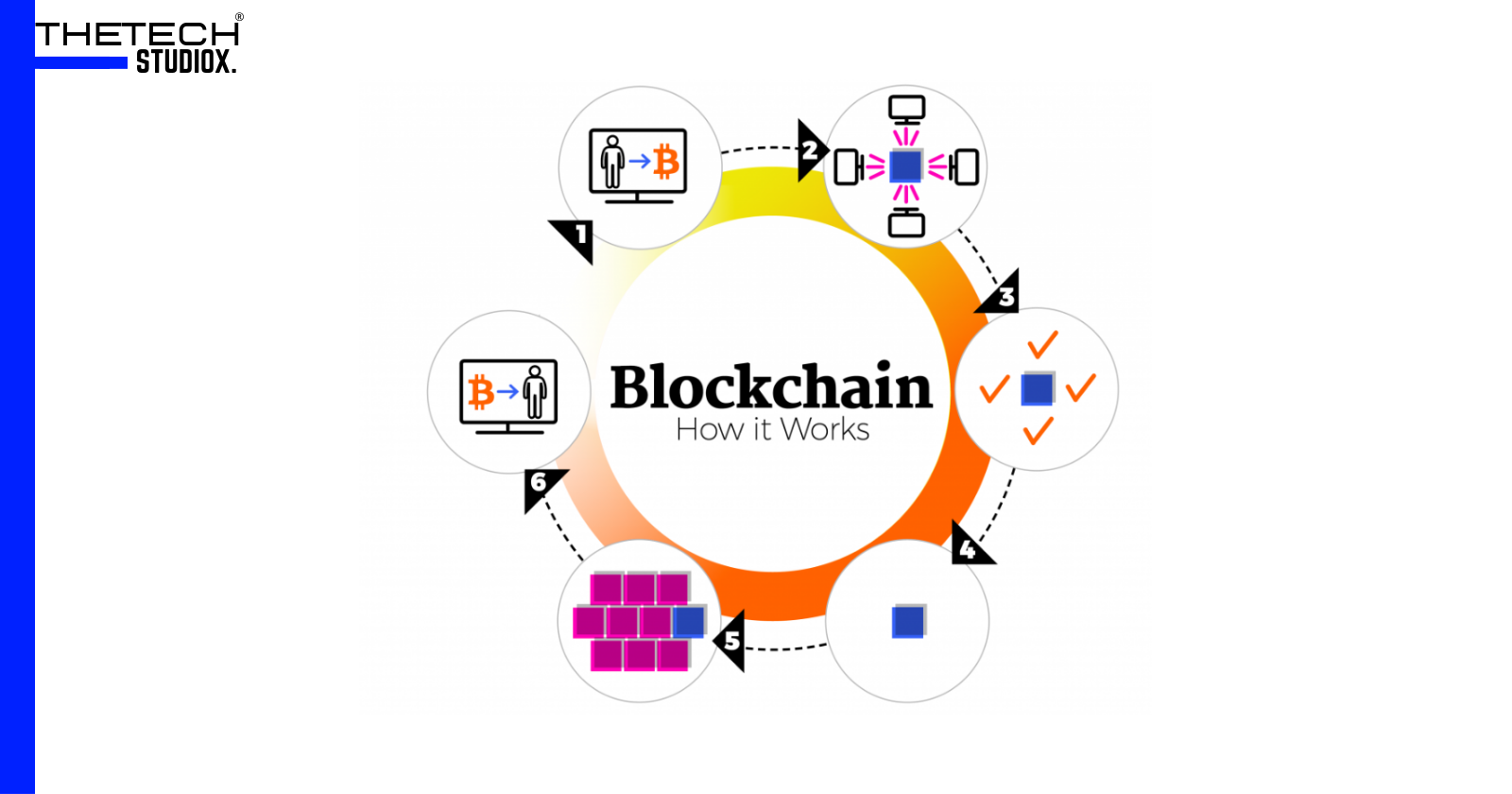Table of Contents
The potential of blockchain technology to revolutionize various sectors is being recognized worldwide. One such sector that stands to gain significantly from the implementation of blockchain technology is supply chain management. The integration of blockchain into supply chain management provides a plethora of benefits, including improved tracking, enhanced transparency, increased efficiency, and bolstered security. Here, we delve into how to implement blockchain technology in supply chain management, exploring its various applications and the steps necessary for successful integration.
Blockchain: A Paradigm Shift in Supply Chain Management

Understanding Blockchain Technology
Before we delve into how to implement blockchain technology in supply chain management, it’s critical to understand the fundamental aspects of blockchain. Blockchain is a decentralized digital ledger that records transactions securely and transparently. It was initially introduced to underpin Bitcoin but has since expanded its scope, promising unprecedented transformations in various sectors, including supply chain management.
Blockchain is composed of blocks linked chronologically, forming a chain. Each block contains verified transactions confirmed by network participants known as nodes. Once a block is added to the chain, it becomes immutable, meaning it can’t be altered or deleted.
A unique feature of blockchain technology is its decentralization. Unlike traditional databases controlled by a single entity, blockchain allows multiple parties to participate in the network and verify transactions, creating a system without a central point of control or failure. As a result, blockchain provides a secure, transparent way to record transactions, making it an ideal solution for supply chain management where transparency and trust between different parties are crucial.
The Impact of Blockchain in Supply Chain Management
The implementation of blockchain technology in supply chain management offers numerous benefits:

Improved Traceability, Transparency, and Trust
Blockchain technology can enhance traceability by providing a transparent and immutable record of all transactions within the supply chain. This facilitates the tracking of products from their origin to their destination, improves accountability, and reduces the risk of fraud. The transparent nature of the blockchain also allows companies to monitor product performance in real-time, enhancing coordination among partners and fostering trust within the supply chain.
Increased Efficiency and Speed
Blockchain technology can automate many processes within the supply chain, increasing efficiency and reducing costs. Automation could include tracking inventory levels, streamlining logistics processes, or even automating payments. The result is a faster, more efficient supply chain that can respond swiftly to market demands.
Reduced Costs
The integration of blockchain technology can help reduce costs across the supply chain by eliminating intermediaries, reducing administrative overheads, and decreasing the potential for errors in manual data entry. Additionally, blockchain can simplify compliance and regulatory processes, further cutting costs.
Enhanced Security
Blockchain technology is inherently secure due to its distributed nature and the use of cryptography. Data recorded on the blockchain is nearly impossible for hackers or malicious actors to tamper with, significantly enhancing the security of the supply chain.
Better Customer Experience
Blockchain technology can also foster a better customer experience. With blockchain, businesses can deliver products faster and more accurately. Moreover, the transparent nature of blockchain enables customers to trace the origins of their products and track them through the supply chain, instilling greater confidence in the products they purchase.
Blockchain Use Cases in Supply Chain Management
The potential use cases of blockchain technology in supply chain management are numerous, including:
Enhancing Traceability and Transparency
One of the most significant challenges in supply chain management is maintaining visibility across the network. Blockchain technology can help address this challenge by providing a secure and transparent way to track goods as they move through the supply chain. This can help reduce problems such as delays, errors, and fraud, while improving efficiency and security.
Environmental and Ethical Sustainability
As sustainability becomes a critical concern in the global market, blockchain technology can help promote environmental sustainability by tracking carbon emissions and other environmental impacts throughout the supply chain. Ethically, blockchain can help companies ensure that their products are sourced responsibly, by tracking products from the point of origin and identifying potential ethical issues.
Quality Assurance
Quality assurance is another area where blockchain can make a significant impact. By recording data on the blockchain at each stage of production, companies can track and verify compliance with specific requirements, ensuring that only products that meet the necessary quality standards reach consumers.
Counterfeit Prevention
Counterfeit consumer goods pose a significant problem in many industries. Blockchain technology can help prevent counterfeiting by creating a tamper-proof record of product ownership and authenticity. This can help protect brands and consumers from the damaging effects of counterfeit goods.
Streamlining Payment Processing
Blockchain technology can also be used to streamline payment processing in supply chains. By using smart contracts, payments can be automated based on predefined conditions such as delivery confirmation or quality inspection.
Challenges and Limitations of Implementing Blockchain in Supply Chain Management
Despite the numerous benefits, several challenges must be addressed when implementing blockchain technology in supply chain management:

Integration with Existing Systems
One of the significant challenges is integrating blockchain technology into existing systems. This can be a complex and time-consuming process, especially for organizations with various legacy systems in place. Therefore, organizations need time and resources to ensure seamless integration of their systems with the blockchain.
Cybersecurity and Data Privacy Concerns
While blockchain technology is inherently secure, it’s important to be aware of potential security risks. Malicious actors can still exploit vulnerabilities to compromise data and networks. Similarly, due to the transparency of the blockchain, there is a risk that sensitive information could be exposed if proper precautions are not taken.
Scalability Issues
As more companies adopt blockchain technology, scalability becomes a significant concern. The current infrastructure may not be able to process large volumes of transactions efficiently, leading to potential delays or performance issues.
Legal and Regulatory Uncertainty
Blockchain technology is relatively new, and there is some uncertainty around how it will be regulated in different jurisdictions. This creates legal and regulatory risks for companies looking to adopt the technology.
Cost Considerations
The cost of implementing and maintaining a blockchain network is a critical factor to consider. While the potential benefits are significant, companies must also consider the costs associated with developing and maintaining a blockchain network over time.
Best Practices for Successful Implementation of Blockchain in Supply Chain Management
Despite the challenges, there are proven ways to successfully implement blockchain technology in supply chain management. Here are some best practices:
Identify Key Use Cases
The first step is to identify the key use cases that will provide the most value for your supply chain. For instance, improving traceability can open doors for further benefits like reducing fraud and increasing efficiency. Always consider the potential risks and costs associated with the use case and plan for worst-case scenarios.
Follow Security Best Practices
Data security is a critical concern when implementing blockchain technology. Therefore, it’s imperative to adopt security best practices, including strong encryption and access control measures.
Analyze the Impact on Existing Systems
Before implementing blockchain technology, it’s important to analyze its potential impact on existing systems and processes. Consider how it will interact with legacy systems and what changes need to be made to ensure smooth integration.
Collaborate with Partners
Implementing blockchain technology requires collaboration with partners across the supply chain. By working together, you can ensure that everyone is on board and that the implementation is successful.
Choose the Right Blockchain Network
There are many different types of blockchain networks, each with its strengths and weaknesses. It’s important to choose the right network for your needs based on factors like scalability, security, and interoperability.
Monitor Performance
Finally, it’s important to monitor the performance of your blockchain implementation over time. This will help you identify any issues or areas for improvement and ensure that the system continues to provide value over time.
The Future of Blockchain in Supply Chain Management
As more businesses recognize the benefits of blockchain technology, its adoption in supply chain management is likely to increase. The future of blockchain in supply chain management looks promising, with the potential for greater adoption, increased integration with Internet of Things (IoT) devices, improved sustainability, and the emergence of new business models. Blockchain technology has the potential to revolutionize supply chain management, providing a more interconnected, efficient, and sustainable ecosystem that benefits everyone involved.
Conclusion
In conclusion, while the journey to implement blockchain technology in supply chain management may be challenging, the potential benefits make it an exciting prospect. With careful planning, collaboration, and adherence to best practices, companies can successfully harness the power of blockchain to transform their supply chains, delivering significant benefits to their operations and their customers.




